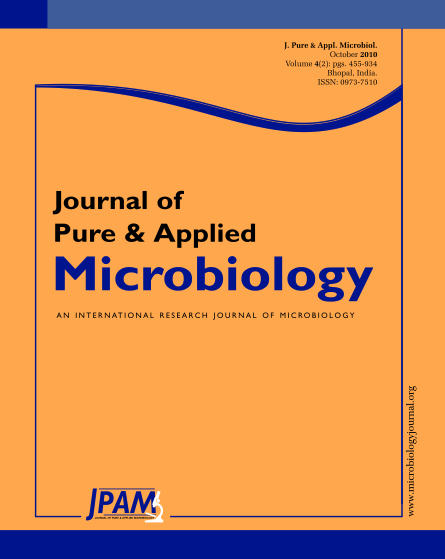Microorganisms present a range of resistances to chemical and enzymatic disinfectants and no single disinfectant is effective in all situations. The aim of the present study is to evaluate the bacteriophage as bio-disinfectant in different conditions. Phage was subjected to a standard battery of tests including the In-Use Dilution Method for Testing Disinfectants and the Germicidal Spray Products Test. Results indicate that aerosolized phage can eradicate or significantly reduce the Staphylococcus aureus load on a variety of materials found in the laboratory and hospital-related equipment. Additionally, Bacteriophage was shown to retain full activity under conditions that mimic a hospital environment, i.e., in the presence of non-ionic detergents, hard water, or organic materials. We propose phage as the first biological, narrow-spectrum disinfectant against Staphylococcus aureus, which may augment or supplement the use of broad-spectrum disinfectants.
Bacteriophage, Bio-disinfectant, Staphylococcus aureus
© The Author(s) 2010. Open Access. This article is distributed under the terms of the Creative Commons Attribution 4.0 International License which permits unrestricted use, sharing, distribution, and reproduction in any medium, provided you give appropriate credit to the original author(s) and the source, provide a link to the Creative Commons license, and indicate if changes were made.


